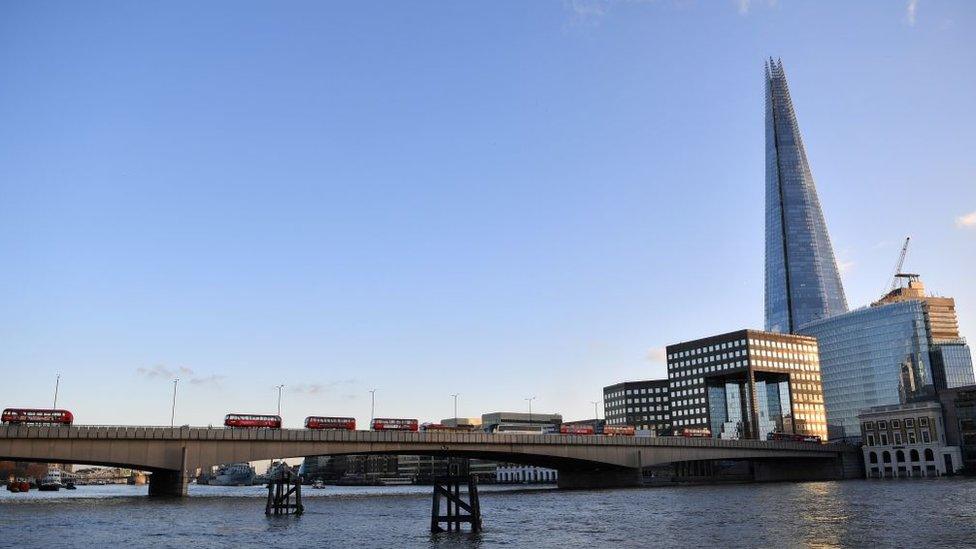Folajimi Olubunmi-Adewole: Friend describes Thames rescue attempt
- Published
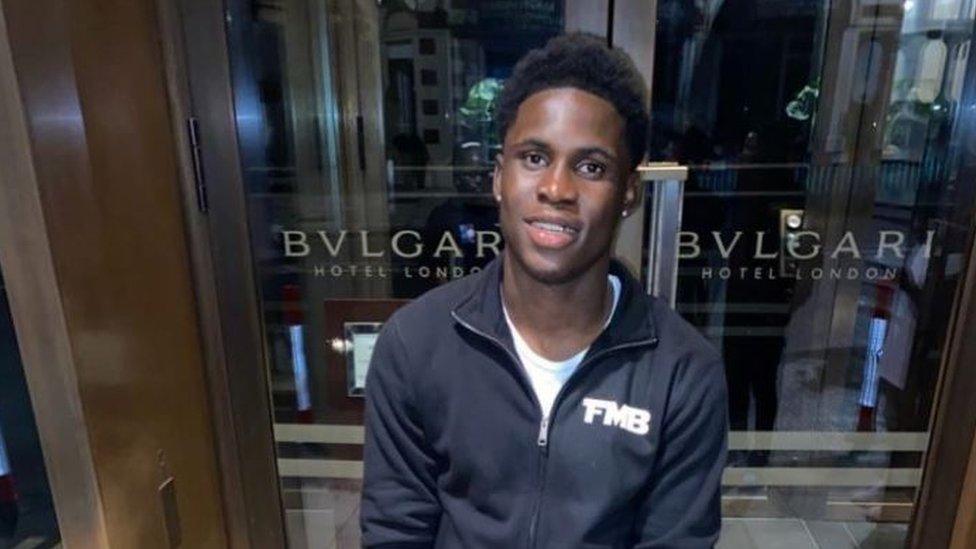
Folajimi Olubunmi-Adewole died after he jumped into the water to try and help a woman who fell from London Bridge
A man who died after jumping into the River Thames in central London to rescue a woman handed his phone to a friend and told him to make sure the police were coming before doing so.
Bernard Kosia told how Folajimi Olubunmi-Adewole made the leap after they heard a woman screaming.
He said she was crying for her life, shouting: "Help, I'm going to die".
Mr Olubunmi-Adewole was one of two men who jumped in to save her, but his body was recovered about six hours later.
Mr Kosia and 20-year-old Mr Olubunmi-Adewole - who was known as Jimi to his friends - had been walking along London Bridge when they heard the screams.
They had just spotted the woman in the water when another man ran up to them, took his trousers off, looked at Mr Olubunmi-Adewole and asked 'can you swim?', to which he replied 'yeah'.
"These are the things Jimi would do because he could swim, he's a positive swimmer, we've gone to a lido, to a swimming centre and he can swim," said Mr Kosia.
"Immediately after that he gave me the phone, he told me 'Bern you stay here, you can't swim, you make sure the police are coming'. I said 'yeah, I will' and then they both got in."
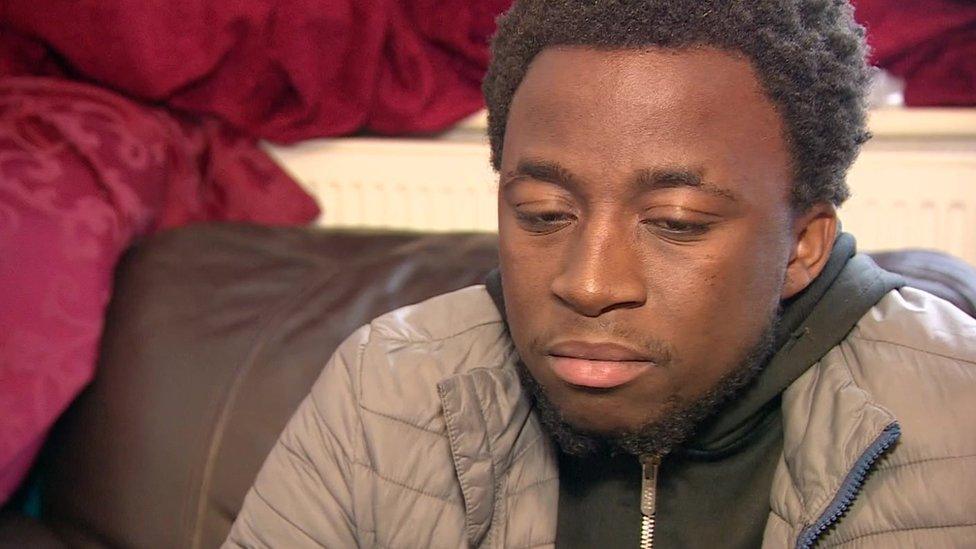
Bernard Kosia said his friend Jimi was a good swimmer
Mr Kosia said he saw both men jump in and swim towards the woman.
"As I was on the phone I could hear Jimi screaming my name," he continued.
"He was screaming my name, he was screaming my name. I couldn't even see him. It was just pitch black, everywhere, and I was trying to see if I could see him."
Mr Kosia said as he stood overlooking the river, all he could hear was his name echoing. Immediately after that the police arrived and sat him down.
The coastguard and the Met Police's marine unit rescued the woman and the other man, but they could not locate Mr Olubunmi-Adewole.
Search operation
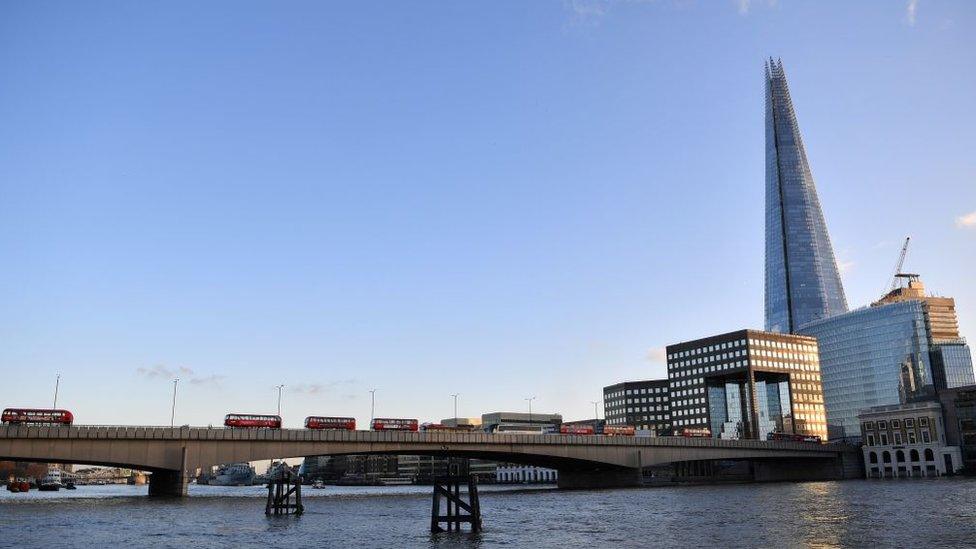
The woman fell from London Bridge at about midnight
Mr Olubunmi-Adewole's parents have been reported as saying they believe the length of time the coastguard and police spent searching for their son was "not enough".
A spokesperson for the coastguard said their operation involved five search-and-rescue boats, visual searches from bridges and the police helicopter flying overhead.
"It was determined where in the water the person could be based on tidal conditions and that area was thoroughly searched many times before the decision was taken to suspend the search at 1.20am," a statement said.
"We will continue to search the surface of the water within a search area until either the missing person has been found or a decision is taken to stand down the search.
"These decisions are taken after serious consideration of all the facts and take into consideration the feelings of the family and friends of those who are missing."
Folajimi Olubunmi-Adewole's father: "I want my son to be honoured and appreciated"
Det Ch Supt Oliver Shaw, from City of London Police, said after the man and women were found, officers "remained on scene to assist the marine units and police helicopter with the search in the water. This was stood down by the Coastguard over an hour later".
He added: "We continued to search the shore of the river, in person and using our network of CCTV cameras, and, unfortunately, at 05.46 a body was discovered.
"The circumstances of this incident are extremely tragic. We continue to support the family of this heroic young man, who heartbreakingly lost his own life trying to save that of another."
Mr Olubunmi-Adewole's family have described him as "the deepest and most wonderful man" and said he deserved a medal for bravery.
His father Michael Adewola said: "I can't bring him back but I want him to be remembered forever for what he did."
He added: "It was just like him to want to always try and help others. He is a hero, and always will be."
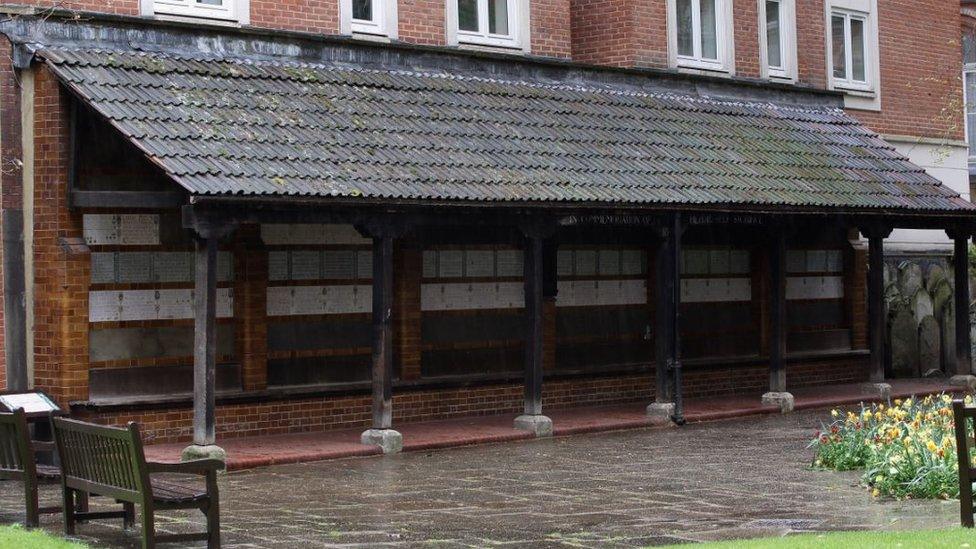
Calls have been made for a plaque to be added to Watts Memorial in recognition of Mr Olubunmi-Adewole's bravery
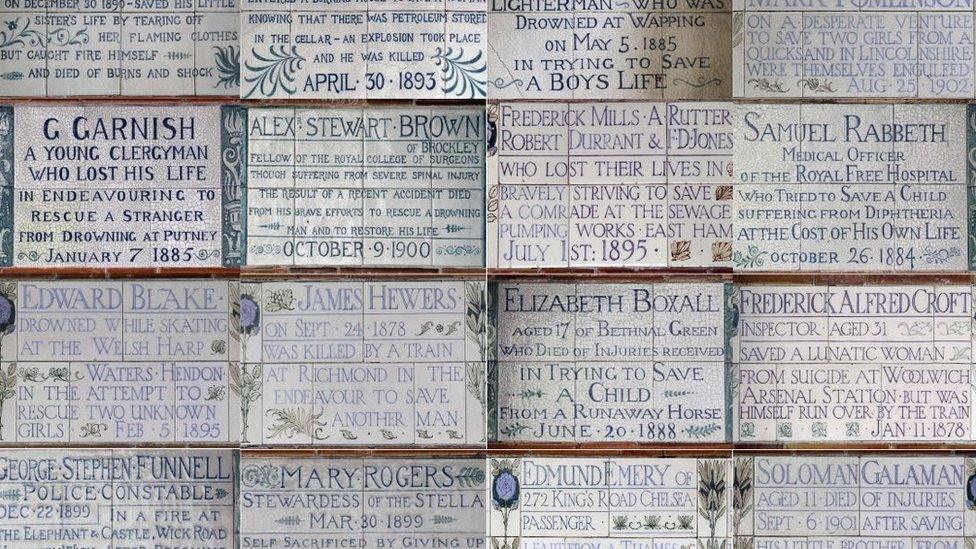
The memorial contains plaques detailing people's courage for the past 200 years
A campaign has been launched for Mr Olubunmi-Adewole to be recognised with a plaque on London Bridge.
Others have called for a plaque to be added to the Watts Memorial in Postman's Park in the city of London.
John Price, senior lecturer of Modern British History at Goldsmith's University and chair of Watts Memorial, said the groups that look after it had decided in 2010 that no further plaques should be added.
However, he told BBC Radio 4's Today programme that he has recently had talks recently about turning Postman's Park into an area celebrating civilian heroism.
Related topics
- Published26 April 2021

- Published26 April 2021

- Published24 April 2021
